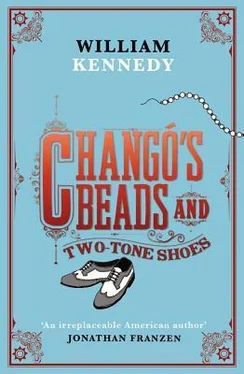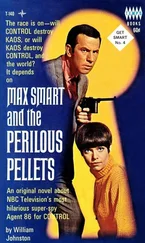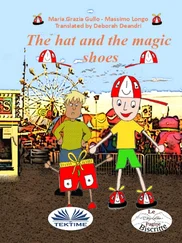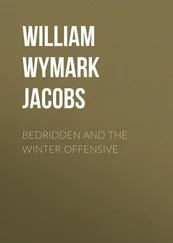“I’m not quite sure what I’ve learned,” said Quinn.
“You learned how to take a wife.”
“That was a miracle.”
“Yes, they sometimes happen in Cuba.”
Fidel led Quinn outside and they walked from the hut to the edge of the woods and back with all the men watching them, the interpreter at Quinn’s side speaking into his ear. Fidel lit Quinn’s and his own Double Coronas with a Zippo and Quinn puffed his alive, savored it, and between puffs gestured his approval to the Comandante.
“They are truly great,” said Fidel. “And the smoke also repels mosquitoes.”
“To get back to revolution,” said Quinn. “My grandfather quoted Maceo that you don’t beg for liberty, you win it with the blow of a machete. He was awed by it. Do you know the battle of Jiguaní?”
“I know the machete. Battles were encounters in that war, not designed. Armies came upon each other and fought.”
“That was Jiguaní,” said Quinn. “Gómez had tried to lure the Spaniards out of their barracks, but failed, so he sent troops to burn Jiguaní’s cattle farm and kill the Spanish herd, and sent hundreds of former slaves, convoyeros , to bring back the meat. The unarmed convoyeros were carrying great slabs of beef back toward Gómez when Spanish foot soldiers ambushed them. Gómez heard the firing and moved with his six hundred white-shirted troops — the charge of the whispering machetes — and the Spanish front disintegrated. Mambí horsemen cut off their arms, or split them in half, a great slaughter. The wounded crawled into the woods to hide, but the Mambí soldiers followed. Nicodemo, the slave who had guided my grandfather into Cuba Libre, was shot in the left arm, but with machete in hand listened for moans from the wounded and beheaded eighteen. He piled their heads at the forest’s edge.”
“First,” said Fidel, “I want you to know that we do not execute enemy wounded. At La Plata we treated them with our medicine. And second, if the troops had formed their Spanish square, those charging machetes would have fallen from Spanish volleys. The machete was effective when the war began, for the surprised Spaniards could not match it with their single-shot rifles and bayonets. It was a weapon for close combat, not attack. The machete was still used in ’95, but when Gómez ordered a machete charge in a battle at Cascorro the Spaniards had repeating rifles, Mausers, and they slaughtered the Cubans, dead horses everywhere. That legendary charge of the machete had come to an end.”
Quinn and the Comandante had been sitting elbow-to-elbow on the outcropping, Quinn’s cigar down to a stub. Fidel stood up and two of his men moved closer to him.
“I would like to explain in detail to you,” he said, “just how we are waging our war on Batista’s army, but that would give him the edge. He has three thousand troops in Oriente. We do not have so many. But I can tell you this, that the way into the Sierra Maestra is not easy. Every entrance is like the pass at Thermopylae, where fourteen hundred Greeks held off a hundred thousand Persians for seven days, slaughtering a multitude until a traitor showed the Persians a path where they were able to outflank the Greeks.”
“The traitor is eternal.”
“Yes, but sometimes he does not prevail.”
With a smile and body language Fidel moved the interview toward closure. He extended his hand and Quinn shook it.
“Señor Quinn,” he said, “I thank you for making the journey here. The interview has been a good one. You did not try to entrap me in political conundrums. We must continue another day. But now I have an appointment with President Batista’s armed forces.”
“Thank you for your words, and the congri , and the cigar,” said Quinn.
“Hasta luego,” said Fidel.
“Buena suerte,” said Quinn. Good luck.

Quinn and Omar, heading back to meet Moncho at Arsenio’s wife’s house, were both on their stomachs in a sparse growth of young trees, small bushes, and tall grass, not moving, for Omar had seen four Cuban army soldiers below in a jeep and he waved Quinn to the ground and hissed “ Abajo ,” then dropped himself into the bushes. Lying on his side looking through the grass Quinn saw no soldiers. He saw a woman’s painted face looming large before him, oval, pale-blue and off-white with very red lips, and she hovered, so vivid that he was about to ask who sent you when she vanished, and all he could see was the undergrowth he was lying in and wishing it were deeper.
Omar lay thirty yards ahead which, Quinn would come to know, was Fidel’s method of moving troops — one by one, a hundred yards between them, not thirty. Omar kept Quinn closer than a hundred for he did not want to lose him; but Fidel’s method was one man in the lead and if they take him down the second one is aware, and new directions are taken. One dead is a big loss but not as big as when one squad leader, ignoring Fidel’s standing order, piled his men into a truck to get there faster and was blown to fragments by an army bazooka, ten gone. Batista’s troops took home nothing from this about the liability of togetherness and they continued moving in a column on the principle of power and safety in numbers, and were shot in multiples by hidden rebels as they came into range. They could then either die returning fire at the invisible foe or survive in retreat.
Quinn and Omar were another hour getting to the rendezvous house, a seven-and-a-half-hour trek. Quinn was desperately tired, soaked in sweat, and all he wanted was sleep. The painted woman’s face returned above him as he walked, her forehead and nose powder blue, eyes rimmed with the same blue, her cheeks, chin, and neck all off-white and her hair a bright yellow. What brings you here, lovely lady, creature from an exotic realm? Is your painted face an enticement to love? Your place or mine? Where is your place? I’ll need a nap first. She didn’t answer, just stared over his head, an aloof one. Maybe she’s the mime of Oshun, isn’t blue her color? Or Renata’s grandmother, desolate spirit, love clown in grief coming late to our wedding. Was she Sikan, about to be sacrificed for capturing the sacred fish, or was this what Renata would look like in ten years? She abandoned Quinn when the sun grew brighter and he was left with a sense of urgency to do something, but what? He could not say, and his urgency turned to anxiety.
He recapitulated his three hours of conversation with the Comandante, trying to fix on a lead for the story he would write. He liked the line about luck but that wasn’t news. The Comandante’s “appointment” with the president’s armed forces was newsy, if it happened and Quinn could get it into print before or on the same day the appointment was kept. What would it be? A modest attack like La Plata? Fidel did not seem to have many men. Quinn had counted about thirty visible around the hut. Quinn you are thinking like a beat reporter. Forget news and profile the revolutionary who doesn’t die. Yes, that was how to do it.
Quinn was as deceived as Matthews about the real number of the rebel force. Matthews guessed two hundred when they were twenty, Quinn counted thirty but they were sixty. Four hours after Quinn had wished him luck the Comandante moved his troops out, a ten-mile march to the army outpost at EI Uvero, a wooden garrison on a lake with fifty-three soldiers. The rebels approached at a crawl for half an hour and took attack positions forty yards from the garrison. Fidel fired first at two o’clock under a genuinely full moon and army rifles flashed with return fire. The fight lasted three hours until the rebels had the garrison in crossfire from two.30 caliber machine guns on tripods, and the army raised the white flag. The rebels counted six dead, the army fourteen, and fourteen taken prisoner, the bloodiest encounter in this war. The rebels loaded an army truck with forty-six rifles, two machine guns, six thousand rounds of ammunition, medicine, clothes, food. The victory proved the value of Fidel’s tactics and the vulnerability of army outposts. All were closed and the troops moved to Oriente’s main military bases.
Читать дальше













